Our composting systems
In base all’utilizzo della macchina di compostaggio, si individuano 3 situazioni con 3 differenti inquadramenti normativi.
THE FACILITIES
The installation of a composter is recommended in all facilities that need to manage organic waste from their kitchens and mowing from green maintenance, in particular, in those that operate in hospitality and service-related sectors, where this waste must be managed as quickly as possible and without generating odors.
Listed below are the types of facilities where it is particularly advantageous to install a composter:
|
Hotels, Resorts, Mountain Huts, Restaurants, and Event Facilities (banquets for parties and weddings): Large tourism facilities, which cater to guests at their facilities and often also provide major banquets and catering, generate a considerable amount of food waste. Installing a compost bin allows for better management of organic waste from cooking and canteens, thus reducing the amount of waste going to landfill and contributing to more sustainable management. |
|
|
Agritourisms and Masserias with in-house agricultural production: Facilities that offer more personalized stays, often in rural settings, can benefit from composting both organic waste produced in the kitchen and plant residues from gardens or vegetable gardens. Agritourisms, in particular, can use compost to fertilize their crops, closing the waste cycle in an environmentally friendly way and giving value to their organic produce. |
|
|
Camping, Glamping and Holiday Resorts: Facilities that host large numbers of tourists, in bungalows, tents or RVs, can generate organic waste in large quantities. Installing compost bins in common areas or central kitchens can help reduce the volume of waste and improve the sustainability of the facility. The compost will be most useful in enriching guest service areas. |
|
|
Hostels and vacation rentals: These facilities, which frequently host groups of people, can benefit from a composting system to manage food waste generated by shared kitchens. In addition, the adoption of eco-friendly practices such as composting can be a distinctive feature that attracts sustainability-conscious tourists. |
|
|
Wellness centers and spas: Even in facilities that offer wellness and relaxation services, such as spas and spas, installing a compost bin can prove beneficial. These centers often produce vegetable waste (for example, in the preparation of extracts or fruit and vegetable dishes), which can be easily composted. |
|
Hotels, Resorts, Mountain Huts, Restaurants, and Event Facilities (banquets for parties and weddings): Large tourism facilities, which cater to guests at their facilities and often also provide major banquets and catering, generate a considerable amount of food waste. Installing a compost bin allows for better management of organic waste from cooking and canteens, thus reducing the amount of waste going to landfill and contributing to more sustainable management. |
|
|
Agritourisms and Masserias with in-house agricultural production: Facilities that offer more personalized stays, often in rural settings, can benefit from composting both organic waste produced in the kitchen and plant residues from gardens or vegetable gardens. Agritourisms, in particular, can use compost to fertilize their crops, closing the waste cycle in an environmentally friendly way and giving value to their organic produce. |
|
|
Camping, Glamping and Holiday Resorts: Facilities that host large numbers of tourists, in bungalows, tents or RVs, can generate organic waste in large quantities. Installing compost bins in common areas or central kitchens can help reduce the volume of waste and improve the sustainability of the facility. The compost will be most useful in enriching guest service areas. |
|
|
Hostels and vacation rentals: These facilities, which frequently host groups of people, can benefit from a composting system to manage food waste generated by shared kitchens. In addition, the adoption of eco-friendly practices such as composting can be a distinctive feature that attracts sustainability-conscious tourists. |
|
|
Wellness centers and spas: Even in facilities that offer wellness and relaxation services, such as spas and spas, installing a compost bin can prove beneficial. These centers often produce vegetable waste (for example, in the preparation of extracts or fruit and vegetable dishes), which can be easily composted. |
THE FACILITIES
The installation of a composter is recommended in all facilities that need to manage organic waste from their kitchens and mowing from green maintenance, in particular, in those that operate in hospitality and service-related sectors, where this waste must be managed as quickly as possible and without generating odors.
Listed below are the types of facilities where it is particularly advantageous to install a composter:
THE FACILITIES
The installation of a composter is recommended in all facilities that need to manage organic waste from their kitchens and mowing from green maintenance, in particular, in those that operate in hospitality and service-related sectors, where this waste must be managed as quickly as possible and without generating odors.
Listed below are the types of facilities where it is particularly advantageous to install a composter:
|
Hotels, Resorts, Mountain Huts, Restaurants, and Event Facilities (banquets for parties and weddings): Large tourism facilities, which cater to guests at their facilities and often also provide major banquets and catering, generate a considerable amount of food waste. Installing a compost bin allows for better management of organic waste from cooking and canteens, thus reducing the amount of waste going to landfill and contributing to more sustainable management. |
|
|
Agritourisms and Masserias with in-house agricultural production: Facilities that offer more personalized stays, often in rural settings, can benefit from composting both organic waste produced in the kitchen and plant residues from gardens or vegetable gardens. Agritourisms, in particular, can use compost to fertilize their crops, closing the waste cycle in an environmentally friendly way and giving value to their organic produce. |
|
|
Camping, Glamping and Holiday Resorts: Facilities that host large numbers of tourists, in bungalows, tents or RVs, can generate organic waste in large quantities. Installing compost bins in common areas or central kitchens can help reduce the volume of waste and improve the sustainability of the facility. The compost will be most useful in enriching guest service areas. |
|
|
Hostels and vacation rentals: These facilities, which frequently host groups of people, can benefit from a composting system to manage food waste generated by shared kitchens. In addition, the adoption of eco-friendly practices such as composting can be a distinctive feature that attracts sustainability-conscious tourists. |
|
|
Wellness centers and spas: Even in facilities that offer wellness and relaxation services, such as spas and spas, installing a compost bin can prove beneficial. These centers often produce vegetable waste (for example, in the preparation of extracts or fruit and vegetable dishes), which can be easily composted. |
THE FACILITIES
The installation of a composter is recommended in all facilities that need to manage organic waste from their kitchens and mowing from green maintenance, in particular, in those that operate in hospitality and service-related sectors, where this waste must be managed as quickly as possible and without generating odors.
Listed below are the types of facilities where it is particularly advantageous to install a composter:
THE FACILITIES
The installation of a composter is recommended in all facilities that need to manage organic waste from their kitchens and mowing from green maintenance, in particular, in those that operate in hospitality and service-related sectors, where this waste must be managed as quickly as possible and without generating odors.
Listed below are the types of facilities where it is particularly advantageous to install a composter:
|
Hotels, Resorts, Mountain Huts, Restaurants, and Event Facilities (banquets for parties and weddings): Large tourism facilities, which cater to guests at their facilities and often also provide major banquets and catering, generate a considerable amount of food waste. Installing a compost bin allows for better management of organic waste from cooking and canteens, thus reducing the amount of waste going to landfill and contributing to more sustainable management. |
|
|
Agritourisms and Masserias with in-house agricultural production: Facilities that offer more personalized stays, often in rural settings, can benefit from composting both organic waste produced in the kitchen and plant residues from gardens or vegetable gardens. Agritourisms, in particular, can use compost to fertilize their crops, closing the waste cycle in an environmentally friendly way and giving value to their organic produce. |
|
|
Camping, Glamping and Holiday Resorts: Facilities that host large numbers of tourists, in bungalows, tents or RVs, can generate organic waste in large quantities. Installing compost bins in common areas or central kitchens can help reduce the volume of waste and improve the sustainability of the facility. The compost will be most useful in enriching guest service areas. |
|
|
Hostels and vacation rentals: These facilities, which frequently host groups of people, can benefit from a composting system to manage food waste generated by shared kitchens. In addition, the adoption of eco-friendly practices such as composting can be a distinctive feature that attracts sustainability-conscious tourists. |
|
|
Wellness centers and spas: Even in facilities that offer wellness and relaxation services, such as spas and spas, installing a compost bin can prove beneficial. These centers often produce vegetable waste (for example, in the preparation of extracts or fruit and vegetable dishes), which can be easily composted. |


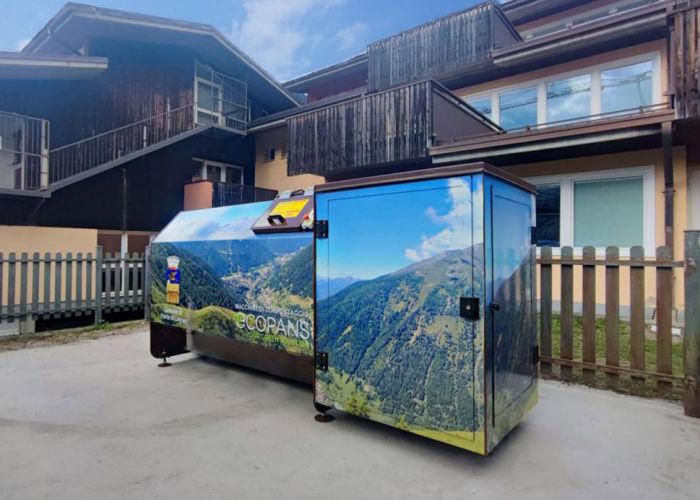 />
/>
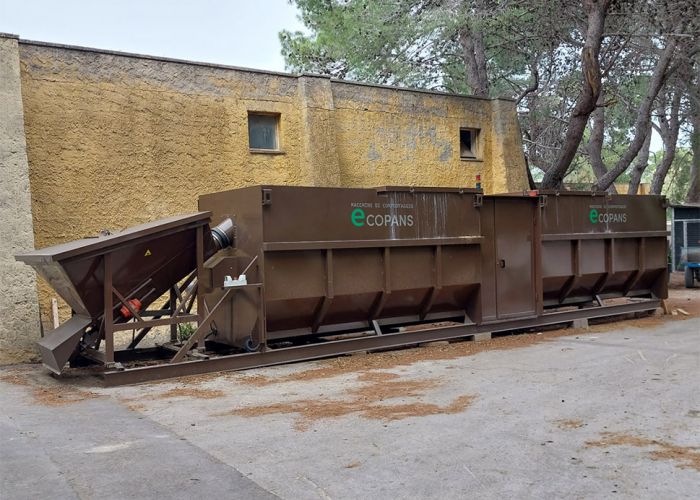 />
/>
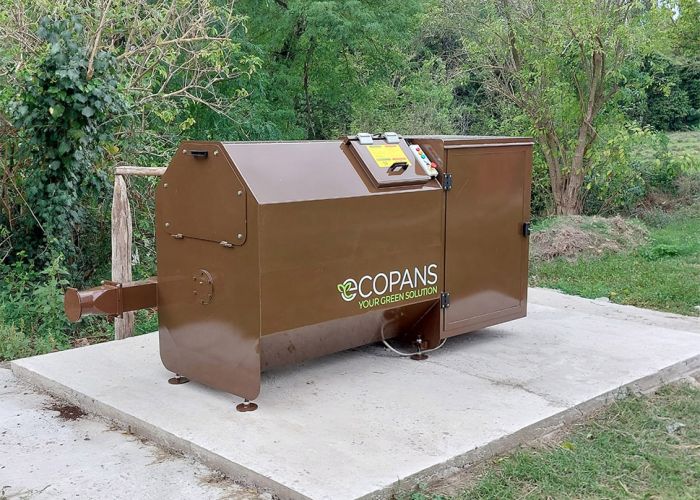 />
/>
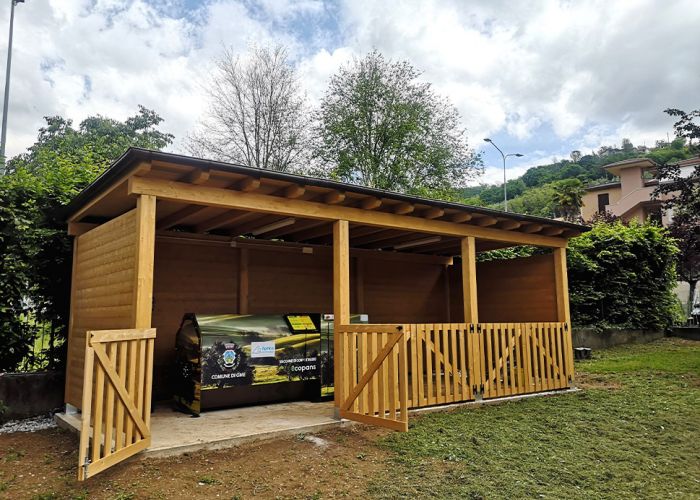 />
/>
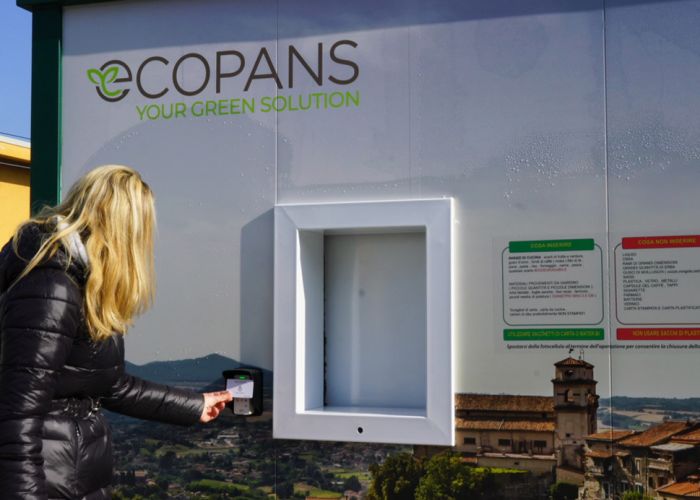 />
/>
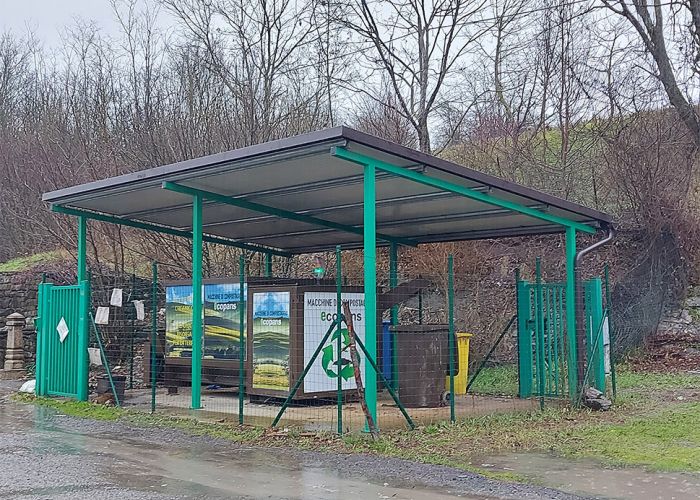 />
/>
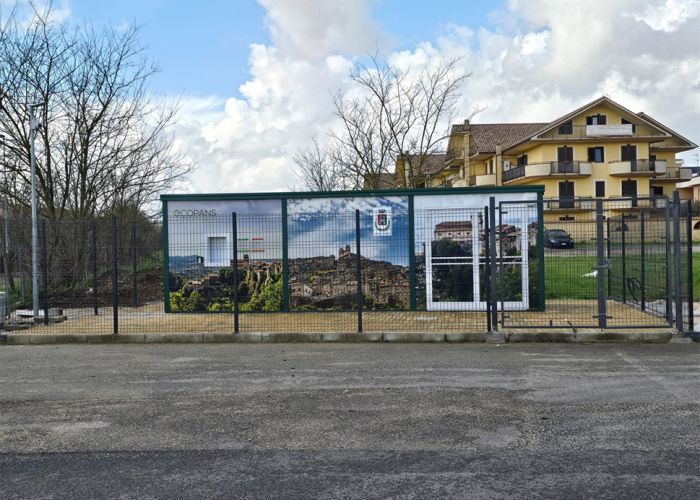 />
/>
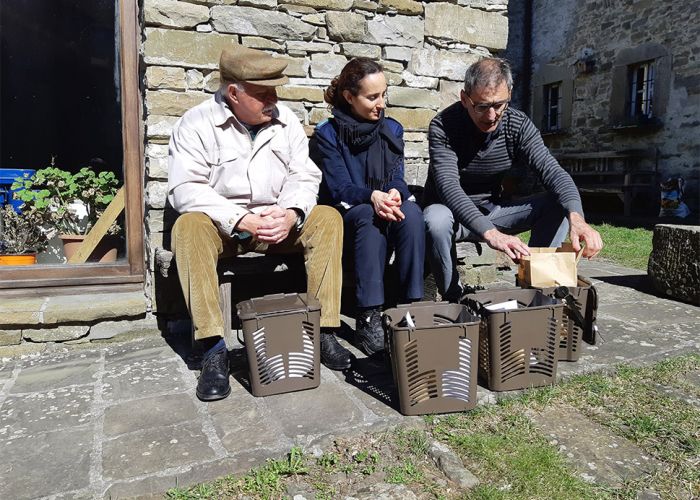 />
/>
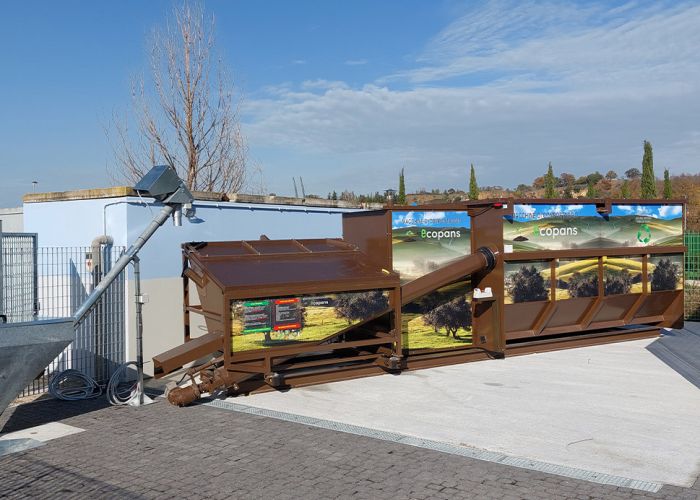 />
/>
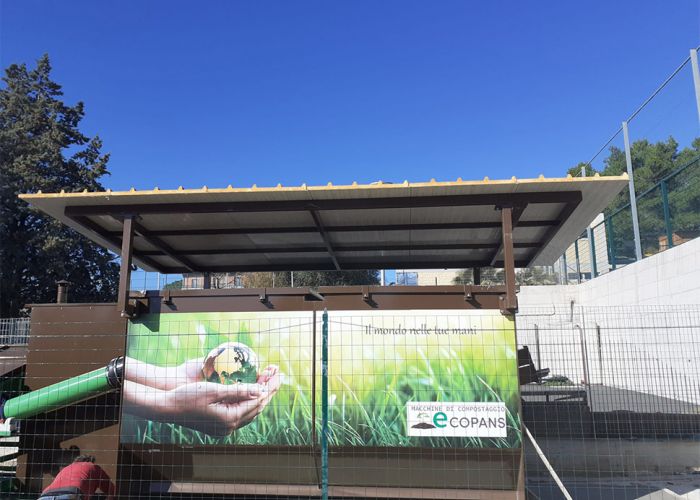 />
/>
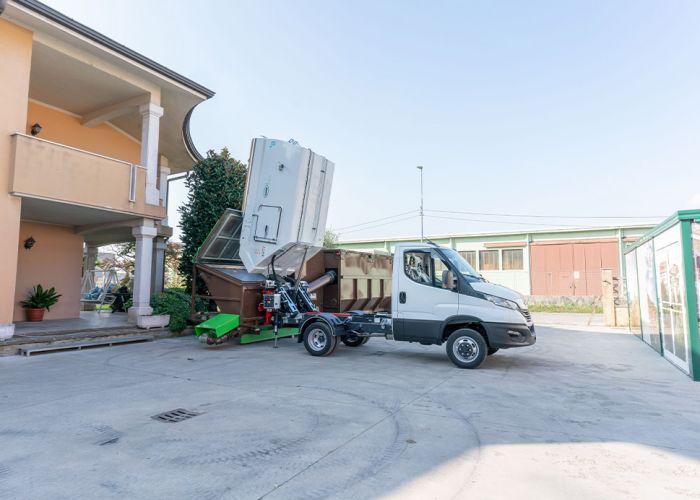 />
/>
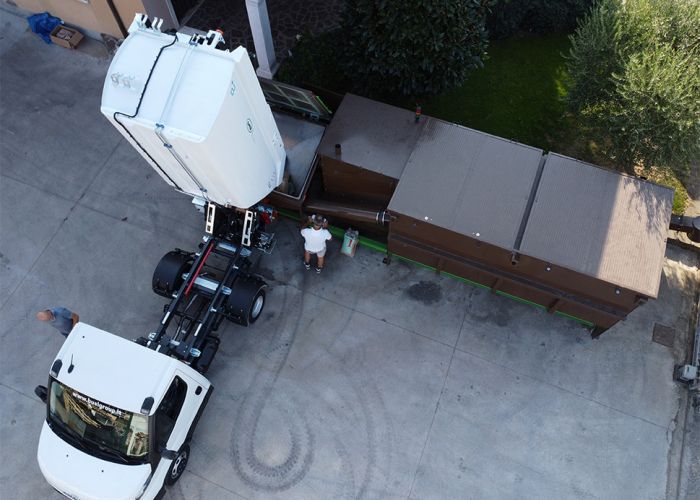 />
/>
 />
/>
